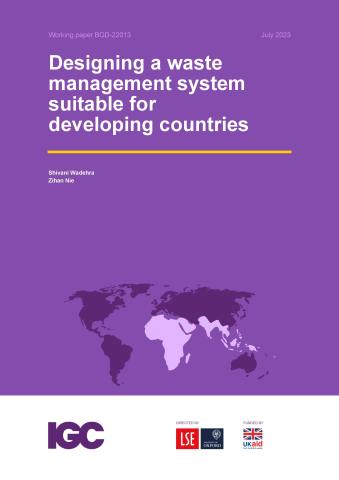Designing a waste management system suitable for developing countries
An experiment in Mymensingh finds that households change their waste disposal behaviour on receipt of information, and that segregation rates are higher for groups that also receive plastic bags or dustbins.
-
Wadehra and Nie Working paper July 2023
PDF document • 427.1 KB
Developing countries are often plagued by inefficient waste management. However, developing countries in the tropics have an advantage of high organic content and high temperatures which make processing of large proportion of waste i.e. organic waste easier. However, this advantage is lost when waste is not segregated as soon as it generated. It is here that this study focuses. We ran an experiment in Mymensingh with 1,577 households. We find that households change their waste disposal behaviour on receipt of information, however the segregation rates for this group are not as strong as the groups that received plastic bags or dustbins in addition to information.



